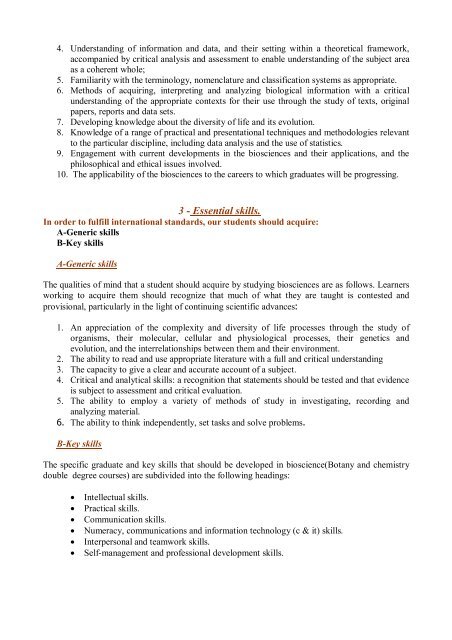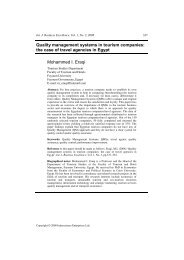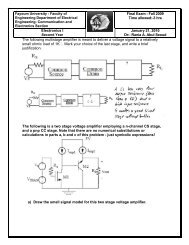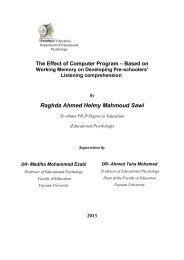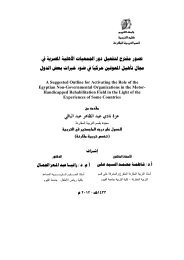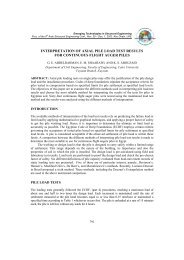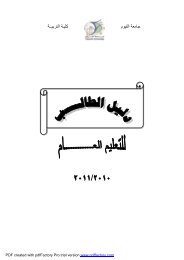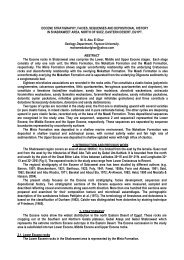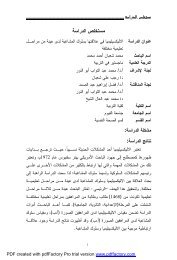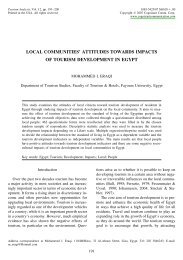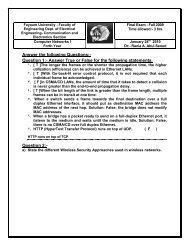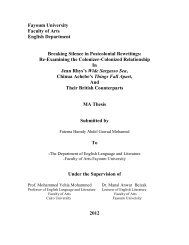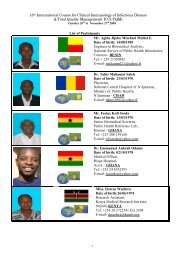National Academic Reference Standards for honors degree
National Academic Reference Standards for honors degree
National Academic Reference Standards for honors degree
You also want an ePaper? Increase the reach of your titles
YUMPU automatically turns print PDFs into web optimized ePapers that Google loves.
4. Understanding of in<strong>for</strong>mation and data, and their setting within a theoretical framework,<br />
accompanied by critical analysis and assessment to enable understanding of the subject area<br />
as a coherent whole;<br />
5. Familiarity with the terminology, nomenclature and classification systems as appropriate.<br />
6. Methods of acquiring, interpreting and analyzing biological in<strong>for</strong>mation with a critical<br />
understanding of the appropriate contexts <strong>for</strong> their use through the study of texts, original<br />
papers, reports and data sets.<br />
7. Developing knowledge about the diversity of life and its evolution.<br />
8. Knowledge of a range of practical and presentational techniques and methodologies relevant<br />
to the particular discipline, including data analysis and the use of statistics.<br />
9. Engagement with current developments in the biosciences and their applications, and the<br />
philosophical and ethical issues involved.<br />
10. The applicability of the biosciences to the careers to which graduates will be progressing.<br />
3 - Essential skills.<br />
In order to fulfill international standards, our students should acquire:<br />
A-Generic skills<br />
B-Key skills<br />
A-Generic skills<br />
The qualities of mind that a student should acquire by studying biosciences are as follows. Learners<br />
working to acquire them should recognize that much of what they are taught is contested and<br />
provisional, particularly in the light of continuing scientific advances:<br />
1. An appreciation of the complexity and diversity of life processes through the study of<br />
organisms, their molecular, cellular and physiological processes, their genetics and<br />
evolution, and the interrelationships between them and their environment.<br />
2. The ability to read and use appropriate literature with a full and critical understanding<br />
3. The capacity to give a clear and accurate account of a subject.<br />
4. Critical and analytical skills: a recognition that statements should be tested and that evidence<br />
is subject to assessment and critical evaluation.<br />
5. The ability to employ a variety of methods of study in investigating, recording and<br />
analyzing material.<br />
6. The ability to think independently, set tasks and solve problems.<br />
B-Key skills<br />
The specific graduate and key skills that should be developed in bioscience(Botany and chemistry<br />
double <strong>degree</strong> courses) are subdivided into the following headings:<br />
<br />
<br />
<br />
<br />
<br />
<br />
Intellectual skills.<br />
Practical skills.<br />
Communication skills.<br />
Numeracy, communications and in<strong>for</strong>mation technology (c & it) skills.<br />
Interpersonal and teamwork skills.<br />
Self-management and professional development skills.<br />
٢١


